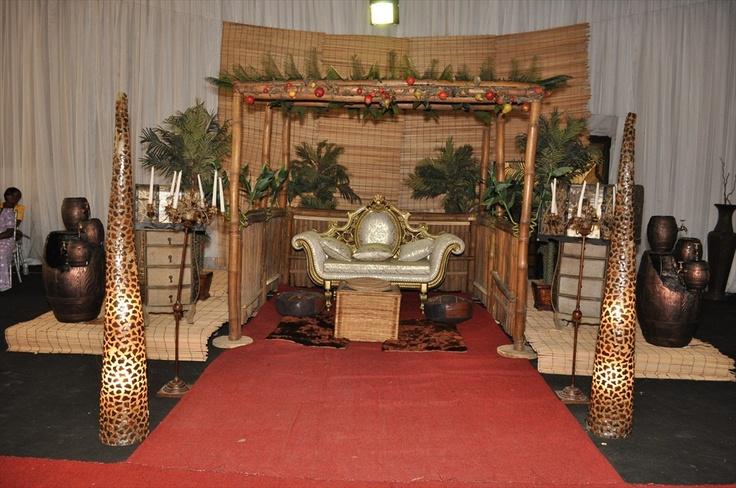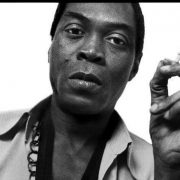Okay Let’s Talk Marriage: African Traditional Marriage

Marriage is hands down, one of the most important institutions in every African society
We would even dare to assume that the ceremony itself- that is, the way one enters this institution is almost as important as marriage itself. Before we go ahead into the world of the African traditional marriage, which is the thrust of this article, let us start from the very beginning.
What is marriage?
Marriage, in basic definition and in this context, is the union of two people that creates a family tie and carries some legal and/or social responsibilities. Wikipedia goes ahead to give us a more detailed definition;
Marriage, also called matrimony or wedlock, is a culturally recognised union between people, called spouses, that establishes the rights and obligations between them, as well as between them and their children, and between them and their in-laws.
Wikipedia also goes on to say that; ‘…typically it is principally an institution in which interpersonal relationships, usually sexual, are acknowledged or sanctioned.’
All these definitions serve to adequately explain what the concept actually means but now we come down to its socio-cultural meaning.
 Image Source: Pinterest.
Image Source: Pinterest.
What does marriage actually mean to different cultures?
It is no news that to Westerners, marriage is first and foremost, optional. It is a choice which must not be forced down on another person. Marriage is also a personal affair and is not necessarily binding. This is why the idea of a divorce comes as naturally to Westerners as the air they breathe. To the African, the absolute reverse is the case. When I say the absolute reverse, I mean the ABSOLUTE reverse.
To the African, marriage encapsulates a lot of concepts and ideals. It is not as simple as the union of two consenting individuals to a lifetime of companionship and devotion.
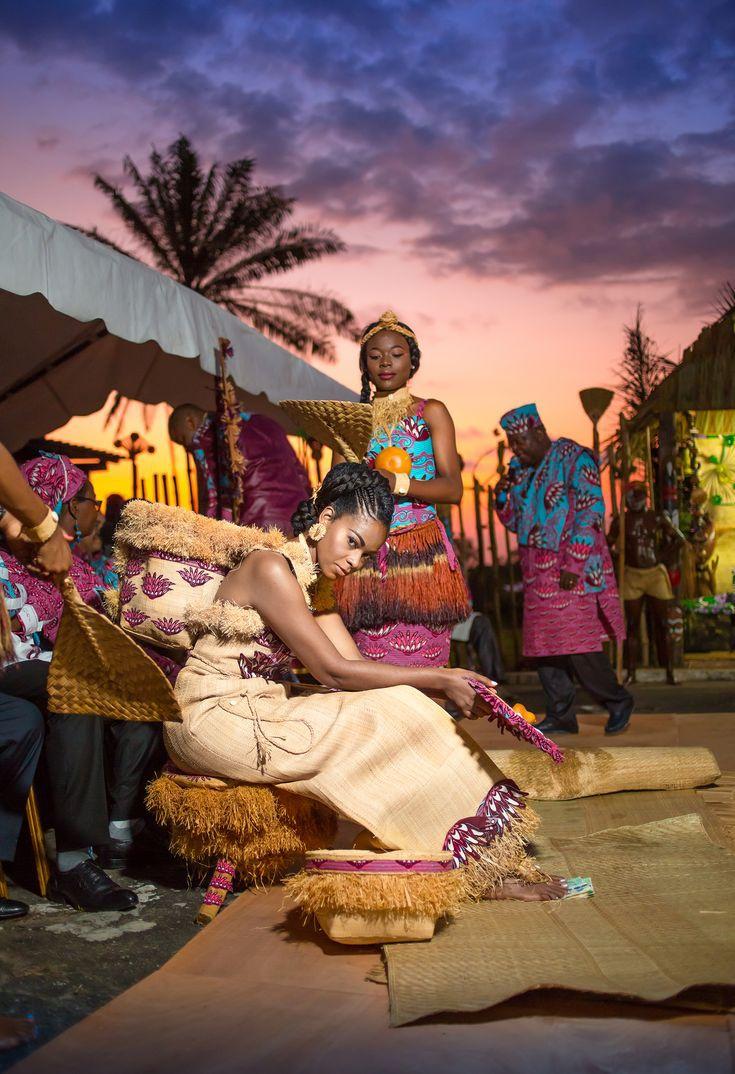
Marriage is so much more and it occupies a very important position in the sphere of things, especially in the past. Marriage was not just a physical affair, it was also communal and spiritual. According to Mbiti (1969: 133);
For African people, marriage is the focus of existence. It is the point
where all the members of a given community meet: the departed, the
living and those yet unborn. All the dimensions of time meet here, and
the whole drama of history is repeated, renewed and revitalized.
Marriage is a drama in which everyone becomes an actor or actress and
not just a spectator.
You see how dramatic marriage is to the average African?
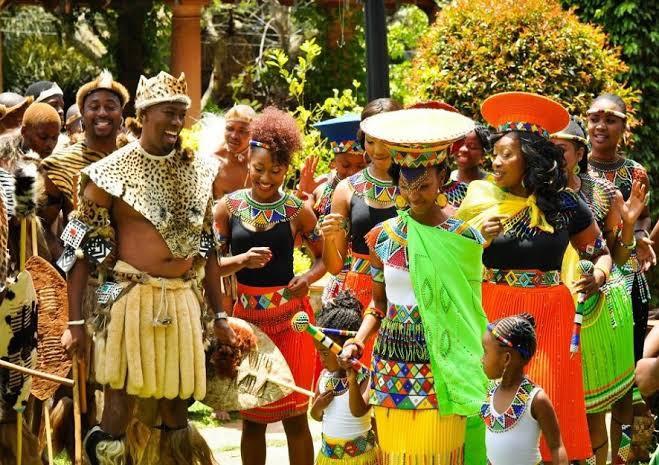 Image Source: face2faceafrica
Image Source: face2faceafrica
Let us go further to answer this question;
How important is marriage in African societies?
The African traditional conception of marriage is primarily for procreation. This is to the extent that the only good reason why a marriage could be dissolved is as a result of infertility which is usually regarded as the sole shortcoming of the wife.
The importance of children is deeply stemmed in the beliefs of the typical African man. It is said that when a man dies, he needs somebody to bear his name so that his name does not die thereby making him immortal.
This notion is deeply rooted in their beliefs in ancestral worship.
Deceased ancestors are integral to the traditional African social structure. In a culture where tribe, clan and family are of utmost importance, ancestors are the most respected members of the family. To be cut off from relationships with one’s ancestors is to cease to be a whole person.As a man never dies, it is important that somebody lives to commune with him when he has transcended.
According to Awolalu and Adelumo (1979: 172):
The Yoruba attach importance to child-bearing. Unfruitful marriage is not only a misfortune but also a curse since the couple have not contributed to the community of the family and therefore, of the society. A barren woman, however rich, famous or prosperous, is a shame to her race.
Therefore, a good marriage was defined by the ability of both parties to fulfill their societally defined responsibilities. When the husband as the head of home is unable to provide for his family or the woman is unable to produce children, the marriage thus has grounds for an annulment.
In some other cultures within Africa like the Akamba of Kenya, we also find this reason for marriage;
It was considered highly important for every Akamba man to be married because it was his wife and children that would guarantee keeping his memory beyond his death. If an Akamba man died before marriage, the father arranged to obtain a wife (Mulewa) for the dead son. Such a girl was married to the name of the “dead unmarried man” and bore him children, usually by his brother (cf. Middleton, p. 90).
Among the Akamba, a woman could be married to a man who was long dead and such a woman was called ‘Mulewa’ – ‘ghost wife.” Athough the ‘ghost wife’ never met her ‘husband’, she knew he once lived and continued to live as a spirit. Mulewa was therefore expected to bear children for her dead husband by sleeping with other men.
Crazy but traditions still.
This objective that procreation is the major motive of marriage pervades all African cultures.
Let’s move on to the forms of marriage.
Typically, we can identify three forms of marriage that are currently in existence in our African communities. We have the white marriage, the court marriage and traditional marriage. Now, for the white marriage- this can be categorised as an importation of the Western culture because before the coming of the Whites, there never used to be a white marriage. This type of marriage involves the Christian religion where both parties present themselves in a sanctuary and are joined in holy matrimony by a member of the clergy with the Christian God serving as the omniscient presence.
The court marriage itself is done under the law of a particular state. This is also another import from Western tradition who brought about a Western form of law execution and administration of justice. The real African marriage which can be traced back to generations upon generations ago is the traditional marriage. As the name implies, it refers to the local form of marriage.
A traditional marriage is where an African’s customs and traditions come to dance a happy dance.
Even with the advent of westernization, christianity and colonization, the African traditional system of marriage still stands although it is slowly fading away as different movements continue to rise against the traditions that kept the past together.
Although we have several countries that make up the continent of Africa, it is surprising to note that most, arguably all traditions follow a specific formula in their traditional practice of marriage but for the sake of avoiding the hazards of sloppy generalizations, we shall focus on traditional marriages in most Nigerian indigenous communities.
THE TRADITIONAL SYSTEM OF MARRIAGE.
THE FIRST STAGE- THE INVESTIGATION
A typical African community is communal in nature hence marriage itself moves from a point of it just being about two individuals to it being about a community gathering. The group always comes first, so in a traditional African marriage, unusual attention is paid to the family you intend to marry into. This is the investigation stage and it is usually carried out by the family of the intended husband.
In this investigation, they find out if there is any record or recurring diseases or negative character traits. They check to see if the family has a history of crime or even infertility. This here is classified investigation as the family of the intended bride might not even know what it is going on. Sometimes, especially in ancient times, if physical investigations are not yielding satisfactory results, the family of the groom moves on to more effective means, in this case, the diviners. These diviners are consulted and in that meeting, everything that needs to be known is laid bare.
It is after this investigation that the decision to carry on with the marriage or whether not to is made. In cases where the family of the groom is not satisfied with the results of the investigation, the whole process is halted and another girl is chosen. It is important to note that during this process, the individuals that are even getting married are? not given the attention or scrutiny their families and lineage gets.
THE SECOND STAGE- THE FLOWER PLUCKING.
It is only after the investigation process has been successfully completed that the family of the bride is informed of the marriage proposal.
From there, it becomes a family business and in ancient times, the lady’s consent was rarely sought as it was believed that since the parents of the child who are believed to be wiser hold the best interests for the child in their hearts, they were in the best position to make such a sensitive decision for her.
According to Yoruba tradition,
“When the parents of the young man and the lady have agreed to on the marriage of their children, and they have told their children about it, after the payment of owo ibasoro, the prospective husband and wife are then allowed to pay and exchange visits, talk, eat and walk together.”
Amazing. A far throw from what we have now, if I must say. The natives from the Eastern part of Nigeria, generally referred to as the Igbos take this stage very seriously. In this case, the family of the groom, along with the groom goes to the house of the bride’s family with an entourage comprising the groom, the groom’s parents, uncles and probably some elders in the family.
It is at this stage that they indicate their interest to ‘pluck a beautiful flower’ in the garden of the intended bride’s family. Usually, after sharing pleasantries and whatnots over cups of freshly tapped palm wine and kola nuts, they decide on a date to meet again. This is because at that point, the groom’s family does not expect a negative or positive response right away. On receiving a positive reply, both families then go forward to decide on a date when the bride price would be paid and all the rites performed. In the unfortunate case where they receive a negative reply, the family moves on to another girl.
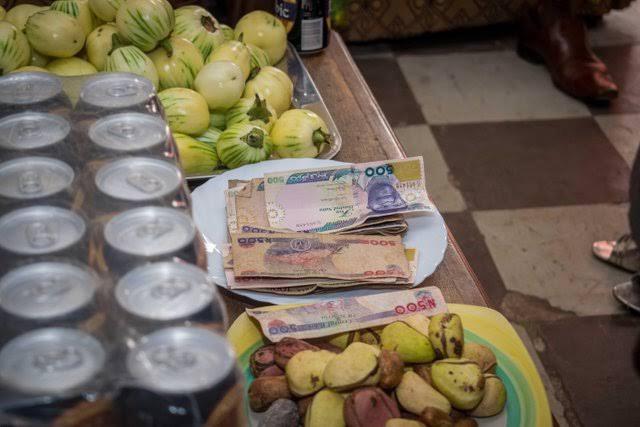 Image Source: steemit
Image Source: steemit
THE THIRD STAGE- PAYING OF THE BRIDE PRICE.
It is important to note that the two stages above are not really practiced as much as they used to. These days, a young man finds a woman he wishes to marry. Without even consulting his family or any older person, he goes on to ask the woman to marry him or in some novel cases, the woman even asks for the man’s hand in marriage. This third stage though, is a stage that cannot be bypassed.
According to The Free Dictionary, the bride price is “[A] payment in the form of money, property, or other valuable asset that is made by or on behalf of a prospective husband to the bride’s family in certain cultures or societies.”
On the day the bride price is paid, there is usually a lot of merriment and singing and dancing. In the sight of customs, traditions and whatnots, the day the bride price is paid is the real day when the marital status of both parties undergoes a permanent change.
Prior to this day, a list must have been provided by the family of the bride. This loss is not fixed, hence it tends to vary among cultures. Some of the things typically included in the list given to the groom’s family by the bride’s family are;
- Gallons of Palmwine (local wine),
- Cash Gifts (usually a significant amount of money).
- Bottles of hot drinks like Schnapps.
- Baskets of kola nuts.
- Animals, usually goats.
- Bags of Rice.
- Tubers of yams.
- Crates of Minerals (soft drink)
- Expensive clothing materials like lace materials and the likes.
- Jewelry
Despite the seeming absurdity of this list, it is important to note that the bride price does not imply the monetary worth of the bride. Instead, every item on the list has a cultural and spiritual significance which cannot be ignored.
Ogoma Daniel Ebun who talks about the Yoruba traditional marriage says;
“Bride price is not the money collected for the sale of the girl. As a matter of fact, girls are not sold in marriage among the Yoruba people. In case of divorce, it will be paid back. Also, it is both in cash and in kind. The money paid by the groom side is endless from the time of the marriage to death. Men are always debtors to the family of their wives. The bride price therefore does not amount to the sale of the girl. It is just part of the fun of the tradition. Yet, there is no marriage without the payment of the bride price among the Yoruba people. I think it is just to show how serious the intending in-laws are about their proposal, or a demonstration of love that the family of the lady have for their daughter.”
And we totally agree!
In modern times, the traditional marriage usually precedes the white marriage. On this occasion, once the bride price has been paid in a closed off meeting between elders from both families, the rest of the family, friends and well wishers gathered for the celebration join the couple in their merriment.
 Image Source: Pinterest
Image Source: Pinterest
The African traditional marriage is a very beautiful affair usually bathed with customs, traditions and practices that go on to reinstate the beautiful institution that marriage should and can be. This is one practice we hope never fades out. Or don’t you agree?
She's an African, Afro-American breed. She's way too radical in her writing style. She adds in a little childish nature to the mix, representing all you want to be but can't.

